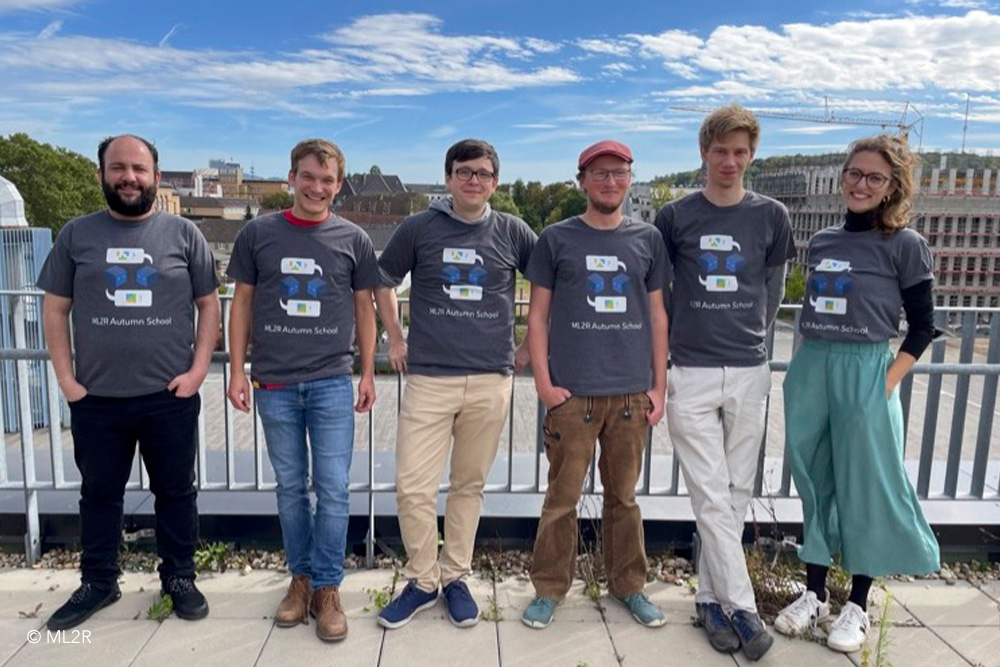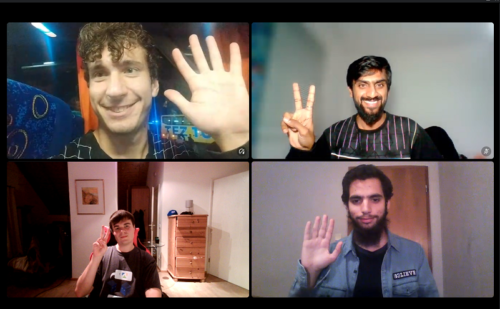Machine Learning for Bin Packing: ML2R Autumn School 2021
October 21, 2021
The ML2R Autumn School 2021 focused on the industry-relevant “Bin Packing”. The virtual one-week event program from October 4th to 8th included lectures, a Design Thinking workshop, social events, and collaborative coding. In small groups, young scientists worked on a concrete Bin Packing problem and developed Machine Learning solutions for it.
The Bin Packing problem aims at the optimal arrangement of different objects with known attributes such that they fit into the smallest possible amount of containers. The combinatorial optimization problem, which can also be used to express, for example, problems within logistics, routing, and process coordination, is one of the most difficult problems for computers in computer science.
Young Scientists develop Machine Learning Solutions for a Bin Packing problem
During the ML2R Autumn School from October 4th to 8th, participants received an introduction to Bin Packing from ML2R experts. In addition, the young scientists from the fields of Machine Learning (ML) and Artificial Intelligence (AI) took part in a Design Thinking workshop and a lecture by the KI-Lernlabor (AI Learning Lab) on the process scheme “MLOps” (Machine Learning Operations). Team-building events, such as a virtual game night and speed dating, rounded out the event program.
In small groups and under the guidance of the ML2R team, participants also developed their own ML solutions and applied them to a well-defined Bin Packing problem. The ML2R congratulates the working group “Utopic Unicorns” surrounding Uzair Majid (TU Dortmund University), Kaushik Manjunatha (Bonn-Rhein-Sieg University of Applied Sciences), Cristian Militaru (Technical University of Cluj-Napoca) and Sergei Voloboev (Technical University of Munich) on the Autumn School Compactness Award. Their “FFD Shaker” improved the existing First Fit Decreasing (FFD) heuristic in eight out of 56 test data sets and, through the smart sorting of objects, was able to reduce the number of containers needed from 15,113 to 15,100.
The winning team:
Contact:
Ann-Kathrin Oster
TU Dortmund University



